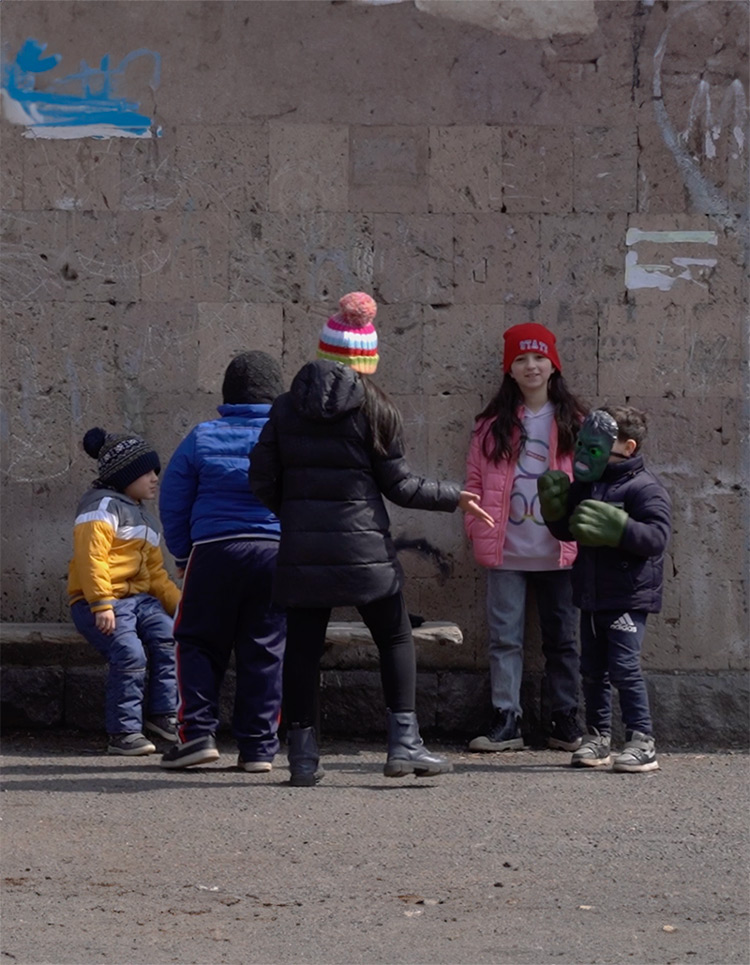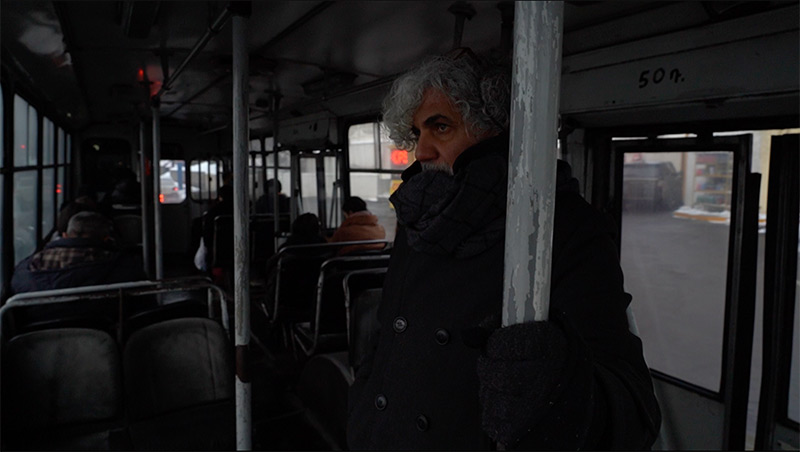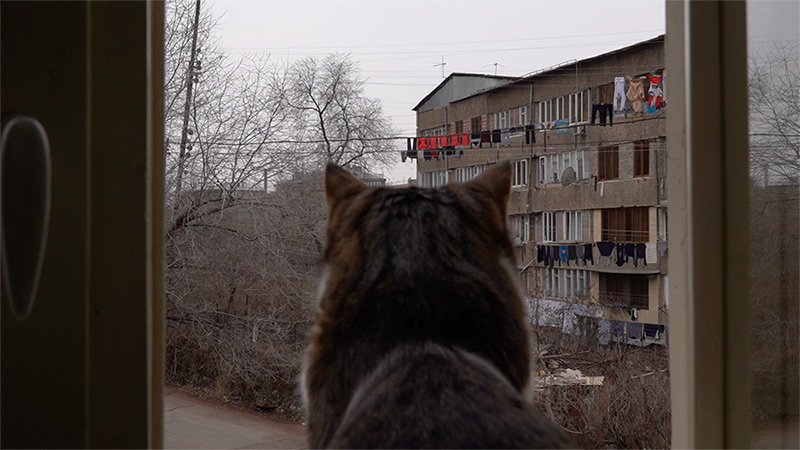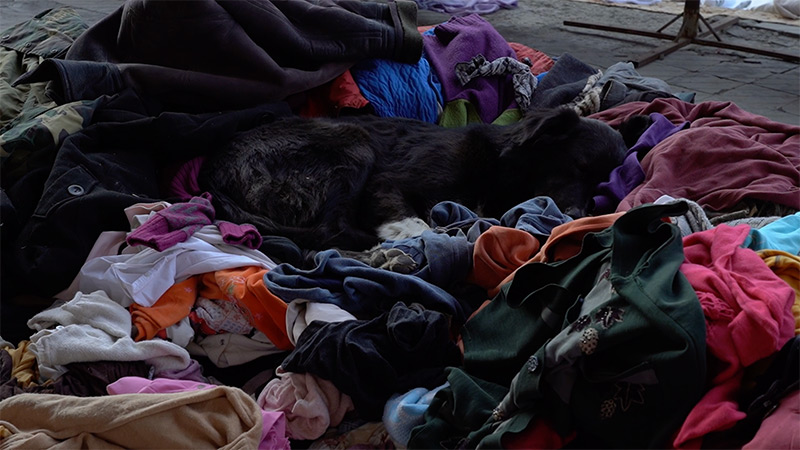Maria Balas
Maria Balas lives and works in Yerevan, Armenia. Maria is a documentary film director, editor, and camerawoman. She works in the form of long-term observation of a hero, event, landscape, object, or place and rarely deviates from this practice.

I want to tell a story about today's Armenia. It will not be a movie about returning home, war and its consequences, tragedies and difficulties that fill modern Armenia. It will be a dialogue between two people who were not supposed to meet. A visual dialogue in which the protagonist and the person behind the camera have the same sense of reality. The feeling of the country to which we both returned. I want to tell a story in which the way I tell it is more important than the topic, more important than the relevance. And a very close connection with the protagonist will allow me to tell this story through his personal story.
PRACTICES AROUND CINEMA
The exhibition is a non-obvious way to get closer to the end of my film. I want to try to introduce a new artistic form into this long research. Identify a few main themes that I address in the film and combine them into one visual essay about each theme. Among them will definitely be modern wars (because the Karabakh issue still remains, and also when I started filming, the war began in Ukraine, and the refugees and relocants who came to Yerevan involuntarily fell into the frame), nudes in Armenia (because my hero is a great artist and photographer, and he photographs naked women, which is still taboo in Armenia), meditation (because my hero and I started practising Vipassana and our lives changed a lot after that), faces of modern Armenia (very different layers of society).
Despite this limitation, the ability to defamiliarisation or ostranenie is very important to her. Being, as a rule, very close one-on-one with the object of her observation, she always tries to generalise the angle of her vision. This gives her the opportunity to break out of the automaticity of perception. Along with this fundamental approach, poetry in the frame is very important to her. The visual part of her works does not require comments. The formula "no comment" is real cinema when you don't need to explain or resort to additional manipulations to say what you want to say. The daily cinematic act, artistic act, is her way of talking with reality. She doesn't know a more suitable form of communication for herself.

Context

For the past three years, I have been following a hero with a complex and mixed heritage. His name is Alek. Being an Armenian, Alek was born in Iran; his family fled to Armenia after the Islamic revolution. During the First Karabakh War, he fled to Poland, then to Spain, where he lived for 20 years, and returned to Armenia on the first day of the Second Karabakh War in 2020. I also returned to Armenia from Russia during the days of the Second Karabakh War. Since then, I have been exploring modern Armenia through Alek. A chameleon hero, a hero guide to the most diverse layers of Armenian society. From flea markets and bread sellers to hipsters and cultural bohemia.



